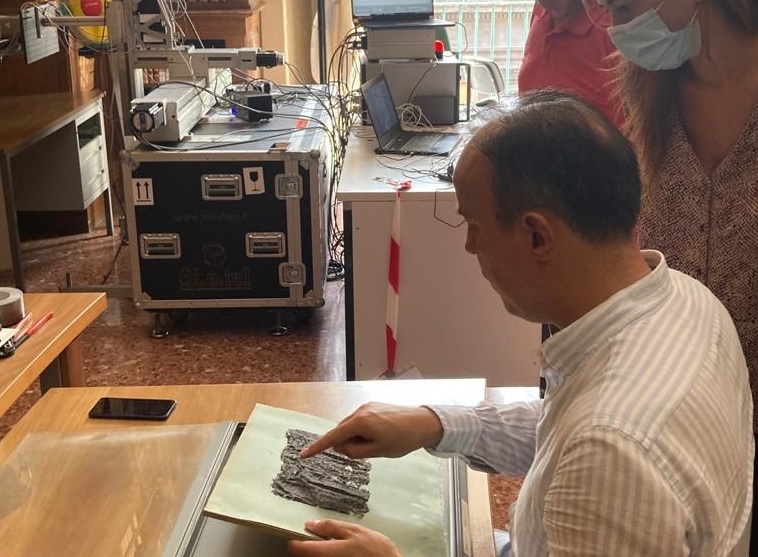The Herculaneum papyri contain the oldest history of Greek philosophy in our possession
Since they are a fragile testimony of the past, their investigation requires special attention. The European Research Council Advanced Grant ‘Greek Schools’ project, coordinated by the University of Pisa together with CNR ISPC, CNR ILC and MiBACT – National Library of Naples, has started the experimental activity at the ISPC Xray Lab in Catania.
The project is based on the most recent research and aims to test the most advanced technologies today available, as an example XFR mapping and photographic imaging measurements at 950 nm, for the deciphering of these precious manuscripts to provide a new innovative critical edition of the whole treatise and its different sections, with extensive introductions and commentaries.
In particular:
- the project shall apply non-invasive techniques to both opisthograph and multi-layered papyri belonging to Philodemus’ Syntaxis in order to (a) read the text hidden on the verso, (b) detect, classify and replace overlapping layers, and (c) read the text concealed inside the latter;
- the project shall combine these state-of-the-art methods with new, sounder philological approaches in order to produce a more reliable and substantially improved critical text of Philodemus’ treatise and its various sections through an innovative editorial system;
- the project shall produce an open-access electronic edition of it through a pioneering open-source scholarly Web platform, engaging the scientific community in an ongoing and online collaborative review of the critical edition.
See more at https://greekschools.eu/

